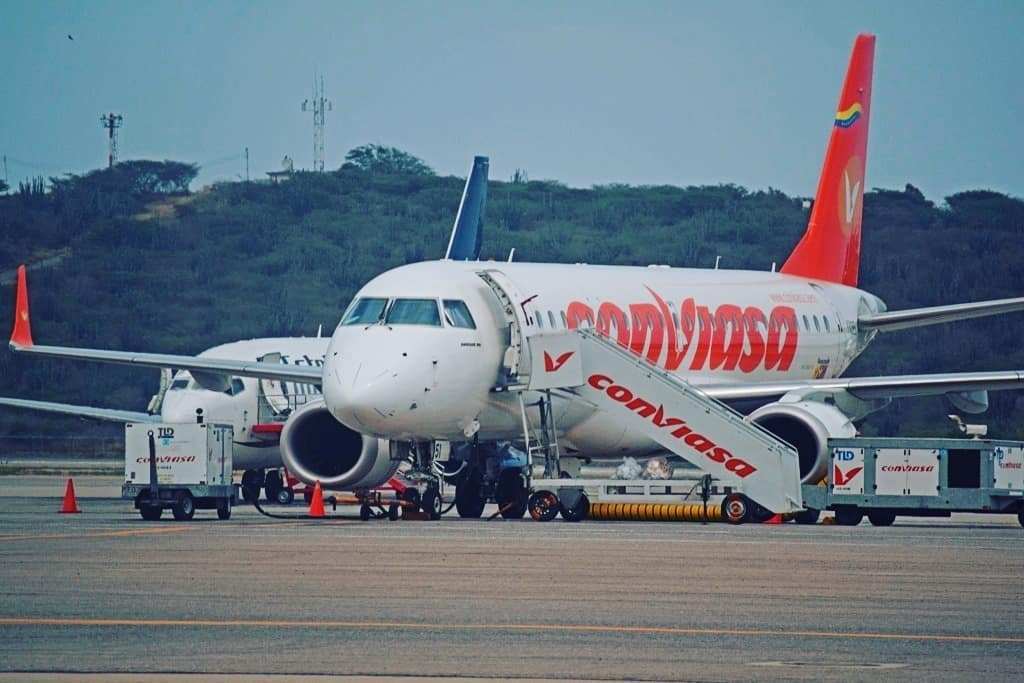Conviasa: Is OFAC Closing the Cabin Door?

Last week, the United States Department of the Treasury’s Office of Foreign Assets Control (“OFAC”) identified Consorcio Venezuelano de Industrias Aeronauticos y Servicios Aereos, S.A. (“Conviasa”) as blocked due to its being a part of the Government of Venezuela. As readers of this blog may known, the Government of Venezuela is blocked pursuant to E.O. 13884. The action taken last week also involved the identification for blocking of a number aircraft which comprised Conviasa’s fleet. OFAC noted that, in reality, both Conviasa and its fleet had been blocked since the time of the Government of Venezuela’s blocking via E.O. 13884, however, the identifications were being undertaken to strengthen compliance with U.S. sanctions.
But what does compliance actually involve here? This question became more unclear (than usual) after OFAC included some strange language in the press release announcing the identifications. Specifically, OFAC noted
“This action does not prevent the ability of the Venezuelan people to travel, as they can continue to travel on various other carriers not subject to OFAC sanctions. “
First, why would the blocking of a Venezuelan airline prevent the ability of the Venezuelan people to travel? Nothing about the action, nor the Venezuelan sanctions program suggests that Venezuelans are now prohibited from traveling within or to and from Venezuela.
Second, why is OFAC telling the Venezuelan people they can continue to travel on other carriers not subject to OFAC sanctions? OFAC does not have jurisdiction over the Venezuelan people to prohibit or permit them to fly any particular carrier. Perhaps OFAC has jurisdiction to prohibit U.S. persons from doing so, but that’s not what they said.
Is OFAC suggesting then, that there could be consequences for Venezuelans who fly Conviasa–i.e., imposition of sanctions against those people? I don’t think that’s right either. I am unaware of any instances in which OFAC designated foreign persons for flying sanctioned airlines. Certainly they have had the opportunity to do so, given that there are numerous airlines sanctioned by OFAC–e.g., Iran Air, Mahan Air, etc. Moreover, there is a travel exemption in the International Emergency Economic Powers Act (“IEEPA”), discussed in further detail below. If that exemption is both applicable, and interpreted the way I describe below, then it would be inconsistent with prior agency policy (at least to the extent that I am aware) to sanction foreign persons for engaging in conduct that U.S. persons would be exempt from.
So what is OFAC talking about? Honestly, I have no clue. I think what they were trying to do is scare people away from Conviasa, including those outside of OFAC’s jurisdictional reach, as well as those whose use or travel-related transactions with the airline may be exempt. In other words, I believe the press release is misleading, perhaps even purposefully so.
As I hinted at above, certain transactions with Conviasa may be exempted from the President’s authority to regulate. What I am referring to is the applicability of the travel exemption contained in IEEPA. That exemption carves out from the President’s authority to prohibit or regulate “any transactions ordinarily incident to travel to or from any country, including….acquisition of goods or services for personal use, and arrangement or facilitation of such travel including nonscheduled air, sea, or land voyages…” 50 U.S.C. § 1702(b)(4).
With that in mind, can flying Conviasa subject U.S. persons to the prohibitions of E.O. 13884 or the (“VSR”) or render foreign persons subject to sanctions under E.O. 13884? My read is no. This is for a few reasons.
First, it appears outside of the President’s authority to regulate any transaction ordinarily incident to travel to or from any country, including acquisition of services for personal use or facilitation of travel, including of air voyages. Thus, it appears that Congress simply did not give the Executive the authority to regulate who may or may not fly an airline that is blocked solely pursuant to IEEPA.
Second, this isn’t the first time that an airline has been sanctioned pursuant to an executive order issued solely under IEEPA. Iran Air has been designated under purely IEEPA-based sanctions programs (e.g., E.O. 13382) in the past, and this exact question has been raised. Although OFAC has not issued any formal written guidance, that I am aware of, to confirm that the travel exemption did not bar U.S. persons from flying the airline or expose foreign persons to sanctions for doing so, it was widely reported that at the time of Iran Air’s designation under E.O. 13382 that OFAC had informally advised different organizations of the applicability of the travel exemption and that it would not prevent U.S. persons or others from flying Iran Air.
Likewise, Conviasa is solely blocked pursuant to an executive order that draws its power to regulate transactions solely from IEEPA. Although, neither E.O. 13884 nor the VSR note the exemption, it is of little import as that order and those regulations are issued pursuant to the President’s authority under IEEPA, and thus cannot go beyond the scope of the statutory authority from which they derive–which has expressly carved out the travel-related transactions identified above.
Thus, it appears that the IEEPA travel exemption applies to dealings with Conviasa, and the vague language of OFAC’s press release cited above neither legally prohibits flying on that airline nor does it threaten foreign persons–including Venezuelans–with sanctions for doing so. Therefore, while their may be other reasons not to fly Conviasa, it does not appear to be per se legally prohibited to do so.
The author of this blog is Erich Ferrari, an attorney specializing in OFAC matters. If you have any questions please contact him at 202-280-6370 or ferrari@falawpc.com.
[/et_pb_text][/et_pb_column][/et_pb_row][/et_pb_section]

